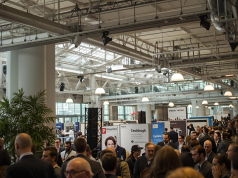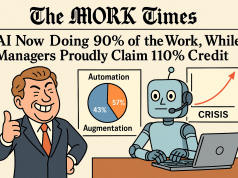[ad_1]

by Laura Stack, MBA, CSP, CPAE
“…A new generation is on the rise, and the first step to communicating with them is understanding they aren’t just another Millennial.” ― Pamela La Gioia, American business author.
The post-Millennial generation of workers, born from about 1995 -2010, has now entered the American workplace in earnest. Some 74 million strong, this diverse cohort comprises about one-quarter of our population, and almost 40% of the workforce. They’re more plugged into the digital world than any generation before them and have never known any other lifestyle.
Although Generation Z’s oldest members have worked steadily for a decade, some business pundits still don’t know what to think of them or how to handle them. And as with Millennials, many of the experts’ expectations regarding Gen Z have proven mostly wrong.
The Entitlement Refrain
It’s amusing, sometimes, to look at early opinions of changing business paradigms. As Millennials were still getting firmly established, older business generations often misconstrued their independence and lackluster corporate loyalty — fueled by the ways businesses treated their parents during the dotcom bust and Great Recession — as lack of focus and laziness. Some observers initially assumed the newest generation of workers would wind up acting even more entitled, self-indulgent, and self-centered than they thought the Millennials were.
Fast forward ten years or so, and there’s still little consensus about what to expect of Gen Z overall. However, there are a few things that most observers agree on. It turns out Generation Z is more conservative than Millennials, moving back toward the Baby Boomer/Generation X idea of business, though they still have an entrepreneurial mindset. Some experts are disturbed by the perception that Gen Z’s devices seem grafted to their hands and think this will certainly diminish productivity, but that doesn’t seem to be the case.
Here’s what you can expect of Generation Z workers in terms of productivity:
- They’re not just a bunch of geeky kids. They’re just more tech-savvy than older generations, since they grew up with the technology. Some view their reliance on social media as distracting and isolating, though Gen Z members themselves see it as a way to connect with people all over the world. To them, it’s a form of global networking — which can become productive indeed as they make connections with potential business partners, the worldwide audience, and the global workforce. They often see their devices as extensions of themselves. All they need to do is harness and channel these interconnective tendencies to leverage them productively. Furthermore, they’re comfortable with digital data and analytics and tend to be creative and design oriented. In most ways, their digital competence serves as a strength; and smart managers, no matter their generation, will take this into account.
- They’re motivated to make contributions to the world, and by extension, to their organizations. If they get the feedback they crave, they’ll give freely of their time and energy. They enjoy volunteering and participating in community work the company gets behind.
- They’re more conservative than Millennials. Gen Z workers are more likely to follow older generation’s’ ideals of structured work and hierarchies than Millennials. Despite their digital orientation, they value the human connection with their teams and prefer facetime with their leaders, with frequent feedback. As a group, they’re less prone to expect validation, and view failure as a chance to learn — the old “fail forward” concept older work generations will find familiar. They’re also very competitive and driven by financial and career goals.
- They prefer personalized work experiences. In this, Gen Z workers do resemble Millennials. More than a third of them (fewer so far than Millennials) see work/life balance as a priority and take this into account when choosing jobs. While more are loyal to their employers, they still want to have things their way — and in many cases they can get that, with remote working and by leveraging the gig economy. They’re also quite entrepreneurial and like their “side hustles,” though perhaps less so than Millennials. They value independence, though prefer job security more than Millennials.
Engage, Engage, Engage!
For the foreseeable future, Generation Z will comprise a significant portion of the workforce, and within a decade, may well dominate it. If you can engage their drive to achieve and contribute, you’ll enjoy fantastic productivity from them… but isn’t this true for every generation? Business insiders suggest mentoring and managing them with Millennials, letting them try and fail if necessary, and encouraging them to think on their feet. Let them use their devices for research and connection and take advantage of their familiarity with technology in any other way than benefits your business.
© 2023 Laura Stack. Laura Stack, MBA, CSP, CPAE is known as The Productivity Pro®. She is an award-winning keynote speaker, bestselling author, and noted authority on personal productivity. For 30 years, she has given keynote speeches and workshops on increasing workplace productivity in high-stress environments. Stack has authored eight books, including the bestselling What to Do When There’s Too Much to Do. She is a past president of the National Speakers Association and a member of the exclusive Speaker Hall of Fame. To book Laura speak at an upcoming meeting or event, contact her at www.TheProductivityPro.com.
[ad_2]
Source link




























